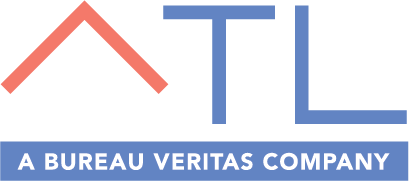Reduce Risks and Gain Consistent Results
In a recent Deloitte survey, 59% of companies listed “cost-cutting” as the #1 reason they outsource operations and services.¹ It’s true: outsourcing can help your company save money. But it can do SO much more. With the right strategy in place, outsourcing can transform your operations.
But what does a transformative strategy look like? To answer that, it helps to consider how the industry itself is changing.
In the past, outsourcing was limited to contracting for routine tests, or to help with compliance checks. Today, outsourcing is increasingly collaborative and strategic.² To compete into the future, companies will need to move further up the outsourcing spectrum, with a partner who provides more strategic services – or even entire scientific functions.
A clear strategy is key to realizing the full value of this new outsourcing model. The blueprint is different for every company, and where you start may be very different from where you end up.
Here are the ingredients of an ideal outsourcing strategy:
WELL-DEFINED GOALS
How clearly can you articulate your desired results—speed, savings, productivity, reallocating resources, fixing a specific pain point? Well-defined goals help your outsourcing partner figure out how best to achieve those goals, and form the basis for the governance that will hold them accountable.
MEANINGFUL MEASURES
A set of consistent benchmarks guides every decision. Common measures include costs savings; reduction in dedicated resources; ability to reallocate space, equipment, and people; speed to market; compliance rates.
A FITTING FRAMEWORK
Strategy is about making choices. Spelling out those choices builds the framework of your specific outsourcing model.
Complexity: Do you just want a method or test, or do you need a partner to handle an entire function? Or something in between?
Oversight: How involved do you need to be in day-to-day supervision? What capabilities would you need to count on and how can you maintain accountability?
Location: Does the process need to take place at your facility, or can you free up space by letting it happen elsewhere? What does it mean for quality management?
SCIENTIFIC CONSIDERATIONS
If you have a partner whose scientific expertise, critical thinking and discernment you trust, you can more easily move in a more strategic direction.
Difficulty: Most traditional outsourcing work is rules-based, very routine and executional. But lately, more companies look for help generating and interpreting data that drive decisions. As needs grow more intricate, your strategy may share more of the R&D and innovation functions.
Certainty: Some methods are simply the nuts and bolts that keep your product flowing to the marketplace—straightforward validation. While most outsourcing work naturally starts here, it can evolve to a more strategic and innovative place where results are more uncertain. A truly valuable outsourcing partner can observe the numbers, but also how the test works, and make more subtle observations.
Protection: Proprietary information, technology, and instrumentation are common reasons companies keep scientific functions in-house. But perceived barriers are often not real. Make sure compliance systems, controls, and security measures are in place to mitigate or even eliminate that risk, freeing you up to “share” more.
A TRUSTWORTHY PARTNER
Trust is everything. You’ll need to be able to implicitly trust the partner you choose – their governance; their ability to adapt to changing conditions and get things back on track; and most of all, their judgment. In the same Deloitte study, 28% of companies say they should have spent more time in vendor selection. Make sure you can trust your outsourcing vendor to grow into a true extension of your own operations.
In the world of science, a successful outsourcing strategy can be the pathway to more breakthroughs and better business results. The time you invest in the right plan – and the right partnership – can pay off for years to come.
At ATL, we’re experts in the field of scientific sourcing. Across all levels of complexity, oversight and location settings, we transform a cost-saving measure into a strategic asset.
¹https://www2.deloitte.com/content/dam/Deloitte/nl/Documents/operations/deloitte-nl-s&o-global-outsourcing-survey.pdf
²“12 Life Sciences Trends to Look Forward to in 2018,” Pharmaceutical Executive, Jan 11, 2018.


Recent Comments